-
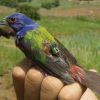 +9 +1
+9 +1Birds migrate along ancient routes – here are the latest high-tech tools scientists are using to study their amazing journeys
Although it still feels like beach weather across much of North America, billions of birds have started taking wing for one of nature’s great spectacles: fall migration. Birds fly south from the northern U.S. and Canada to wintering grounds in the southern U.S., Caribbean and Latin America, sometimes covering thousands of miles. Other birds leave temperate Eurasia for Africa, tropical Asia or Australia.
-
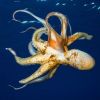 +18 +1
+18 +1Are octopuses too intelligent to eat?
Oil-crisped tentacles, paper-thin carpaccio and octopus meat plump from slow-cooking have been popping up on restaurant menus across the country, where the long-time Mediterranean ‘superfood’ is fast being adopted as the British gourmand’s dinner-plate darling. What was once an exotic holiday meal is now consumed to the tune of 1,300 tons per year in the UK, up 12-fold since 1990. In the decade to 2019, the global trade doubled to a value of more than £2 billion.
-
 +14 +1
+14 +1A plane of monkeys, a pandemic, and a botched deal: inside the science crisis you’ve never heard of
Experts say there’s a dire shortage of primates for biomedical research—and it’s putting human lives at risk.
-
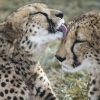 +10 +1
+10 +1Cheetahs to prowl India for first time in 70 years
The mammals are coming from Namibia in a deal that has been in negotiations since 2020.
-
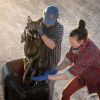 +12 +1
+12 +1Endangered red wolf populations could be revived with 'ghost' genes from coyotes, scientists say
Scientists are hopeful that the endangered red wolf population could be revived now that a significant portion of its DNA has been found in wild coyote populations.
-
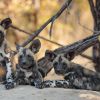 +3 +1
+3 +1Top predators could 'trap' themselves trying to adapt to climate change, study shows
As climate change alters environments across the globe, scientists have discovered that in response, many species are shifting the timing of major life events, such as reproduction.
-
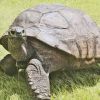 +19 +1
+19 +1Wild turtles age slowly. Some basically don't age at all
New research finds that turtles in the wild age slowly and have long lifespans, and identifies several species that essentially don't age at all.
-
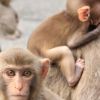 +17 +1
+17 +1The Social Brains of Primates
Number of social connections predicts the volume of brain structures in monkeys.
-
 +18 +1
+18 +1Scientists find dingoes genetically different from domestic dogs after decoding genome
The canine is an intermediary between wolves and domestic dog breeds, research shows
-
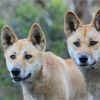 +16 +1
+16 +1From wolf to chihuahua: new research reveals where the dingo sits on the evolutionary timeline of dogs
The first high-quality Australian dingo genome gives a multi-thousand-year-old snapshot into the evolutionary history of dogs.
-
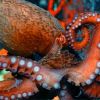 +14 +1
+14 +1Hidden World of Octopus Cities and Culture Shows why it's Wrong to Farm These Sentient Creatures
A recently proposed aquaculture octopus farm in the Canary Islands would raise 3,000 tonnes of octopus a year, which means almost 275,000 individual octopuses will be killed annually.
-
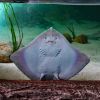 +15 +1
+15 +1Fish can perform addition and subtraction, finds study
Cichlid and stingray fish species can perform simple calculations in numbers ranging from one to five, a study stated. Researchers trained them to perform simple additions and substractions by increasing and decreasing an initial value by one. They can also be trained to detect smaller quantities without even counting. It, however, is not known what these fish need their mathematical abilities for.
-
 +11 +1
+11 +1How America Saved Millions of Dogs—By Moving Them
How adoptable animals became a cultural phenomenon in their own right, and a key part of a transformation of companion-animal welfare.
-
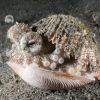 +16 +1
+16 +1The world’s first octopus farm - should it go ahead?
The world’s first commercial octopus farm is closer to becoming reality - but scientists are up in arms.
-
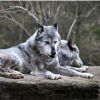 +13 +1
+13 +1Is there any such thing as a truly 'wild' animal anymore?
As human populations expand into what was once the territory of wild animals, we've drastically altered their natural environment and living conditions. The dilemma of how we should consider and treat wild animals, has never been more difficult than it is right now. So how much should we intervene?
-
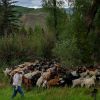 +13 +1
+13 +1The Unconventional Weapon Against Future Wildfires: Goats
Lani Malmberg travels with a few hundred goats, which eat the tall brush and grasses that power Western wildfires.
-
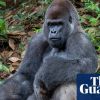 +4 +1
+4 +1Thirteen gorillas test positive for Covid at Atlanta zoo
Western lowland gorillas are believed to have caught the virus from a zookeeper
-
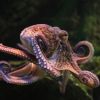 +15 +1
+15 +1Female octopuses throw shells at males annoying them
Researchers observe animals raising arms in direction of thrower or ducking in anticipation
-
 +20 +1
+20 +1New Study Shows Dogs Adore Human Smiles (and Vice Versa!) Because of the 'Love Hormone'
You’re not imagining it: Your dog loves looking deeply into your eyes while you smile just as much as you love your pup’s sweet doggie grin. It’s clearly a mutual admiration between the two of you, but it’s also science.
-
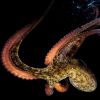 +17 +1
+17 +1Female octopuses throw things at males that are harassing them
An analysis of footage of octopuses off the coast of Australia “throwing” shells and silt suggests that they intentionally target – and often hit – other octopuses. In most cases, it is females that do the throwing, often at males that are harassing them. In 2015, Peter Godfrey-Smith at the University of Sydney and his colleagues filmed several common Sydney octopuses (Octopus tetricus) interacting at a site in Jervis Bay dubbed “Octopolis”. It is one of the few places in the otherwise sandy sea bottom where octopuses can make dens, so there are an unusual number of the animals in a small area.
Submit a link
Start a discussion




















